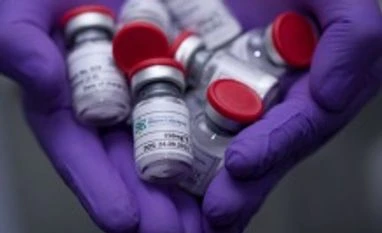Pharma majors like Ahmedabad-based Zydus Cadila, Delhi-based Panacea Biotech, Hyderabad-based Bharat Biotech, and Pune-based Serum Institute of India, have variants of the epidemic flu vaccine in their kitty. According to Pankaj Patel, chairman and managing director of Zydus Cadila, one of the first companies in India to launch swine flu vaccine VaxiFlu-S in 2010, said that the company always maintained a buffer stock for emergency situations, and can also scale up production as and when required. "We can ramp up production of the vaccine and meet demand within a month's time, if needed," he said.
Cases of swine flu have been recently reported from parts of Gujarat (where the death toll is reportedly around 15 now with over 112 cases), near Hyderabad (over 173 cases reported), and also in and around Delhi (over 100 cases). When contacted, officials from the Union Health Ministry informed that the government has enough stock of the medicine Oseltamivir, which is administered to swine flu patients, and is also working to procure more drugs. SCL Das, secretary, health and family welfare, government of New Delhi, said that there is a definite process to procure drugs or even vaccines in public health system. "As for medicines, we have sufficient stocks," he added.
Also Read
A senior official in Zydus Cadila, who did not wish to be named, said that, so far there has not been any major tendering by the Union or the state governments to procure the vaccines. He added that vaccines are used mainly as a preventive measure, while Oseltamivir (which Zydus Cadila also manufactures), is given to patients who are already diagnosed with swine flu symptoms.
Rajesh Jain, joint managing director, Panacea Bitoech too informed that so far there has been no major news from any government agency to procure the vaccine.
It may be noted here that vaccine makers had actually reported meagre sales during the last few years, after the demand had picked up significantly during the 2009-2010 break, when over 45,000 cases were reported across the country in those two years. Thereafter, hardly a few hundred cases have been reported every year, impacting the demand for the vaccines.
For that matter, Serum Institute had had to destroy over two million doses of the vaccine in 2011, after there was no demand from the market.
A senior official of a vaccine manufacturer, who did not wish to be identified said that during 2010 and 2011, companies had produced a few million doses of the vaccines, anticipating that people would opt for it as a preventive measure, and also government agencies would stock vaccines for healthcare professionals and paramedics. "Most of the stocks had to be destroyed, and ever since, we have become very cautious about producing in large volumes," he added.
Another dimension is that every year, the US Centers for Disease Control & Prevention (US CDC), issues details about the latest strain of the flu virus which is causing infections that season.
"This comes out around March every year, and post that companies start producing the vaccines for that season. It is not just H1N1 (or swine flu) that causes deaths. There are different kinds of flu viruses, of which, some are deadly," Jain explained.
For example, according to recent media reports, flu has claimed around 56 lives in the US since September last year, and that the H3N2 strain of the virus (seasonal flu) has mutated and therefore the current vaccine doesn't protect against it.
Currently, in India a trivalent vaccine is available, which is claimed to be effective against three strains of the flu virus. Companies like Zydus Cadila and Panacea Biotech had invested significant amounts to develop the indigenous vaccines.
Zydus has spent Rs 80 crore to develop the vaccine in-house together with investing around Rs 50 crore to expand its Moraiya facility that manufactures VaxiFlu.
The company can produce 12 million doses of the vaccine if required. Serum Institute too has invested close to Rs 50 crore to expand its Pune facility that is now equipped to produce around 50 million doses of the vaccine Nasovac annually.
Panacea has invested close to Rs 100 crore to set up a 45 million dose per annum facility at Lalru in Punjab for the Pandyflu vaccine.
As a Mumbai-based analyst pointed out that making of these vaccines would be a difficult task.
"It is indeed a lucrative line of business as well, as the volumes are extremely high, while margins are low. However, most of these companies wait for government tendering to secure the volumes," the analyst added.
)